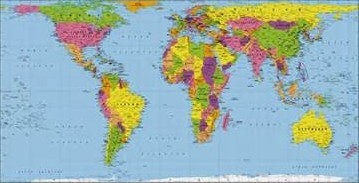Faith and Love can Heal our Racial Divisions
QUOFLECTIONS™
ON SPIRITUALITY AND ETHICS
“Do to us what you will and we will still love you….
But be assured that we’ll wear you down
by our capacity to suffer,
and one day we will win our freedom.”
Dr. Martin Luther King, Jr.
Christina Price’s friend is driving her and three others home to play video games. Suddenly, the bright lights of an East Providence police car are flashing.
The officer asks four of five girls for their drivers licenses. Soon, it dawns on Christina: The four retrieved licenses are for her, an African American, and three Hispanics. The only person not asked was White.
No ticket or warning is issued. Apparently, the offenses are driving and riding as persons of color.
Listening attentively to Christina at the Wildflour Bakery are her Mother, Darlene Price, and Rev. Linda Watkins, a Pawtucket Pastor. An impressive young woman, Christina expresses quiet incredulity at the assumption that Black skin likely means illegal activity. In the eyes of the police, Christina says calmly but firmly, “I’m a person second, but I’m a Black first….You’re Black, so something’s wrong.”
Inspiring hearty laughter, Christina then lets loose her police-stop finding: “It’s not a kidnapping!”
Nationwide, police recently killed several unarmed African Americans, including a child only twelve. I arranged this meeting to discuss race relations in the aftermath of the latest incident: The failure of Prosecutor Daniel Donovan–and the grand jury he guided–to indict Officer Daniel Pantaleo for the choking death of Eric Garner. The Coroner stated the cause of death was homicide.
“It was obvious,” says Darlene. “Somebody was violated.” Her revulsion at all manner of racial violations is evident: “This is happening every day.” Indeed, she believes racial injustice occurs in “every state, every city and town.”
Christina agrees, “There’s no way there’s justice.”
Speaking for herself, not her church, Pastor Watkins says the injustices of Ferguson and Staten Island are “part of a historical continuum. They are not isolated incidents. They’re the straw that broke the camel’s back–and that’s why there are widespread protests.”
I mention the outrageous overt racism exemplified in the movie Mississippi Burning. Though no longer as commonplace, still, I wonder how Whites will overcome our subconscious fears and scapegoating of Blacks.
Choosing her words with care, Pastor Watkins states, “There are still great divides within American society. Despite the appearance that race relations have improved significantly since the 1960’s, we have reached another fork in the road.”
Christina says choosing that right path means rejecting false assumptions. Is it really in the nature of Blacks to steal? “Thugs,” she says, “is the new ‘N’ word.”
Even one of Christina’s high school teachers assumed her parents did not attend college. To the contrary, Darlene, a college graduate, is a State Planner for the Office of Housing.
Affirming Christina’s observations and concerns, Pastor Watkins emphasizes “honest dialogue–not based on false beliefs and assumptions.” She also discusses how Christians can respond to race issues: “As people of faith, I believe we have an extra responsibility to step back and explore what the Scriptures tell us. God is a God of justice and righteousness as well as love and mercy.”
Pastor Watkins says we are called to be reconcilers, reminding me of Dr. King’s gracious call to love unjust persons so much that we win them over, making possible “a double victory.” How incredibly forgiving!
Darlene recalls the Apostle Paul’s writing that all Christians have unity in Jesus because “there is neither Jew nor Greek” (Galatians 3:28). As race should no longer divide, Darlene believes “our hearts should be changed.”
Closing with an inviting smile, Pastor Watkins suggests we apply Advent’s message. “As we await the Son of God, let us bring peace, love, joy, hope and truth to our world.”
Surely, as we heed this wonderful benediction, we can work mightily to overthrow institutionalized racism as well as examine and heal our personal prejudices.
©2015 Harry Rix. All rights reserved.
Related Articles
Appreciating the Prophet of Love
Does Racial Inequality Persist?
Seeking Racial Justice is both Personal and Political
Reasons for Riots
The Legacy of Slavery in Rhode Island
Transforming Our Racist Culture

